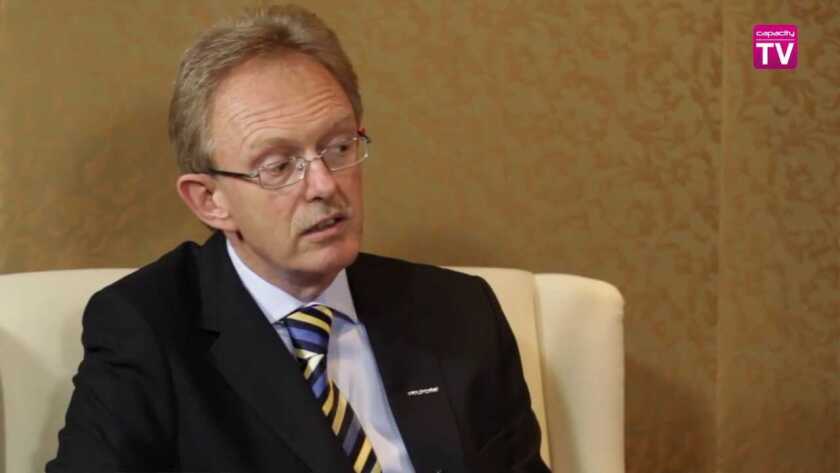Using blockchain for settlement in the wholesale carrier industry can reduce cost, improve operating efficiency and improve cashflow.
But for the real value to be recognised, the entire industry needs to embrace the idea, says Mike Van Den Bergh, the chief marketing officer of PCCW Global.
The Hong Kong-based carrier, the international operating division of HKT, has partnered with Colt and blockchain specialist Clear in trying out the technology, initially for wholesale settlement of voice minutes.
“It is a value tool between ourselves and Colt,” says Van Den Bergh. “Right from the start we’ve got to be open and inclusive. We need to have minimum barriers to entry.”
As Colt CEO Carl Grivner explained in a previous interview, the idea emerged at a meeting of the Global Leaders’ Forum (GLF), the organisation that brings together the top executives of the key wholesale telecoms carriers around the world. Grivner and PCCW Global CEO Marc Halbfinger decided to try out blockchain for wholesale settlement when the GLF met at the Capacity Europe conference in October 2017; four months later the first proofs of concept had been tried successfully.
“The object now is to promote a new way of working,” says Van Den Bergh. “It has the potential to transform the whole industry. The value will be in inclusivity – so everyone is working on a common basis.”
Until now the industry has used conventional methods to record the transport of voice minutes – and other traffic – across each other’s networks. In the trials, Colt and PCCW Global implemented a bilateral private blockchain to record transactions, which were then reported to a public blockchain. Smart contracts were then used to rate call detail records, resolve disputes and record the settlement transactions.
“The industry is a success because of the levels of trust between companies,” says Van Den Bergh. “Blockchain helps to reinforce that. It offers new and more effective ways to operate.”
Voice minutes were used in the trial “because most players have a common set of rules”, he notes. “The nice thing about wholesale voice is that most carriers work in exactly the same way.” It made sense for the trial to work with existing processes “and just apply blockchain”, he adds.
Blockchain is a distributed ledger system, with multiple copies of files making it virtually impossible to distort the entries.
For the trial, Colt and PCCW Global used a combination of private and public blockchains, says Van Den Bergh. “That creates a level of resilience. It takes away the need for third-party verification.”
If the GLF and the wider industry want to adopt blockchain for all transactions, what confidence is there that the system will be scalable? One of the most famous uses of blockchain so far is Bitcoin and other cryptocurrencies, but they need so much processing power that they are unsuitable for small transactions.
“That’s the advantage of taking a private and public approach,” says Van Den Bergh. Transactions between two companies can be made on a private blockchain, and then the overall ledger is replicated on the public blockchain.
The next stage is for a larger number of carriers, working through the GLF, to do further proofs of concept. “Everyone is already talking about blockchain and knows it is a good thing.”
The trial at the start of this year used live data, so the two carriers could compare the results from blockchain with the results using the traditional way of working.
“Normally it involves large numbers of people and days if not weeks,” says Van Den Bergh. “But we were doing it in seconds. This immediately speeds up settlement.” Often the delays are caused by lengthy reconciliation and dispute procedures. Blockchain offers the potential to automate that, using what Van Den Bergh calls “smart contracts”.
The project has already “captured the imagination of the industry”, he says. “We have had more and more people knocking on our doors, even people from outside the GLF.”
For smaller players, he adds, “the real value will be created when the entire industry is working in the same way. Collaboration is a natural function of how the industry works.”
A public blockchain “will accommodate every player including the smallest, and they will decide when to implement private blockchain”. The key, he says, “will be to make it attractive enough, so that the amount of investment will be small. We are starting to think about the business model.”
And Van Den Bergh echoes Grivner’s suggestion that a later step could be a cryptocurrency that the industry would use for its settlements.
“It’s an obvious evolution of the model,” he adds. The currency would be convertible into standard – or fiat – currencies. But what would it be called? Among the latest suggestions: the Carl or the Marc.
Other articles in this series:






